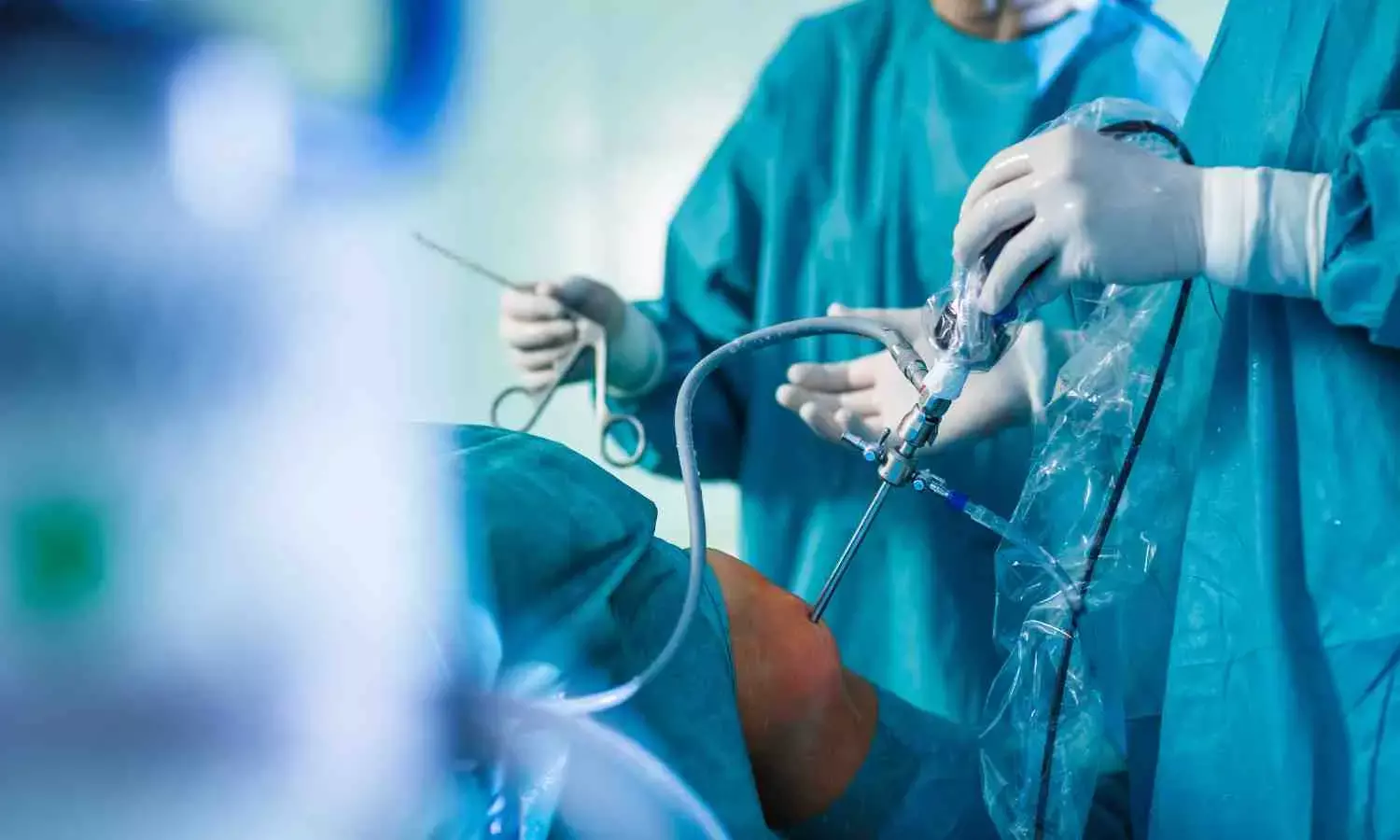- Home
- Medical news & Guidelines
- Anesthesiology
- Cardiology and CTVS
- Critical Care
- Dentistry
- Dermatology
- Diabetes and Endocrinology
- ENT
- Gastroenterology
- Medicine
- Nephrology
- Neurology
- Obstretics-Gynaecology
- Oncology
- Ophthalmology
- Orthopaedics
- Pediatrics-Neonatology
- Psychiatry
- Pulmonology
- Radiology
- Surgery
- Urology
- Laboratory Medicine
- Diet
- Nursing
- Paramedical
- Physiotherapy
- Health news
- Fact Check
- Bone Health Fact Check
- Brain Health Fact Check
- Cancer Related Fact Check
- Child Care Fact Check
- Dental and oral health fact check
- Diabetes and metabolic health fact check
- Diet and Nutrition Fact Check
- Eye and ENT Care Fact Check
- Fitness fact check
- Gut health fact check
- Heart health fact check
- Kidney health fact check
- Medical education fact check
- Men's health fact check
- Respiratory fact check
- Skin and hair care fact check
- Vaccine and Immunization fact check
- Women's health fact check
- AYUSH
- State News
- Andaman and Nicobar Islands
- Andhra Pradesh
- Arunachal Pradesh
- Assam
- Bihar
- Chandigarh
- Chattisgarh
- Dadra and Nagar Haveli
- Daman and Diu
- Delhi
- Goa
- Gujarat
- Haryana
- Himachal Pradesh
- Jammu & Kashmir
- Jharkhand
- Karnataka
- Kerala
- Ladakh
- Lakshadweep
- Madhya Pradesh
- Maharashtra
- Manipur
- Meghalaya
- Mizoram
- Nagaland
- Odisha
- Puducherry
- Punjab
- Rajasthan
- Sikkim
- Tamil Nadu
- Telangana
- Tripura
- Uttar Pradesh
- Uttrakhand
- West Bengal
- Medical Education
- Industry
Study Finds Bariatric Surgery's Effect on Carpal Tunnel Syndrome Diminishes Over Time

UK: A recent propensity score-matched cohort study has shed new light on the relationship between bariatric surgery and carpal tunnel syndrome (CTS), suggesting that significant weight loss may not have a lasting impact on reducing the incidence of this common condition. The study, published in the Journal of Plastic, Reconstructive & Aesthetic Surgery, challenges the notion that weight reduction through bariatric surgery consistently alleviates CTS symptoms.
The large population-based cohort study revealed that bariatric surgery was associated with a 23% reduction in the risk of CTS within the first three years after the procedure.
"This supports our hypothesis that bariatric surgery, as a proxy for weight loss, can initially decrease CTS risk. However, over a longer follow-up period, the risk of CTS increased by 20%, indicating that the risk of CTS may depend on the time elapsed since the surgery," the researchers wrote.
Carpal tunnel syndrome, a condition caused by pressure on the median nerve in the wrist, often leads to symptoms such as pain, numbness, and tingling in the hand and arm. It is frequently observed in individuals with obesity, prompting many to believe that substantial weight loss could reduce the prevalence or severity of CTS.
Jennifer Lane, Barts Bone and Joint Health, Blizard Institute, Queen Mary University of London, London, UK, and colleagues tested the hypothesis that weight loss following bariatric surgery is associated with a reduced risk of developing CTS compared with obese patients who do not undergo bariatric surgery.
For this purpose, the researchers performed a cohort study utilizing data from the Swedish nationwide healthcare registries. They matched patients aged 18–79 years who underwent bariatric surgery between 2006 and 2019 with up to two obese individuals who did not undergo surgery ("unexposed patients") using propensity score matching.
Cox proportional hazard regression was employed to calculate hazard ratios (HR) to compare the incidence of carpal tunnel syndrome between bariatric surgery patients and their unexposed counterparts. The analysis was conducted overall and within subgroups categorized by age, sex, type of bariatric surgery, and duration of follow-up.
The study revealed the following findings:
- In total, 40,619 bariatric surgery patients were PS-matched to 63,540 obese unexposed patients who did not undergo surgery.
- Bariatric surgery was not associated overall with CTS (HR 0.98).
- There was a 23% decreased risk of CTS incidence observed within >1–3 years after bariatric surgery (HR 0.77).
- Decreased CTS risks were observed among bariatric surgery patients aged 18–34 years (HR 0.87) and those who underwent sleeve gastrectomy (HR 0.81), but these risks did not reach a significance level compared with obese unexposed patients.
- There was a 20% increase in CTS risk after six years (HR 1.20).
"This study, the first to examine CTS risk post-bariatric surgery in a large registry, reveals that while significant weight loss reduces CTS risk short-term, this benefit diminishes over time. Younger patients and those undergoing sleeve gastrectomy showed a trend towards lower risk, suggesting weight loss has only a temporary impact on CTS," the researchers concluded.
Reference:
Lane, Jennifer, et al. "The Association of Bariatric Surgery and Carpal Tunnel Syndrome: a Propensity Score-matched Cohort Study." Journal of Plastic, Reconstructive & Aesthetic Surgery: JPRAS, vol. 97, 2024, pp. 245-255.
Dr Kamal Kant Kohli-MBBS, DTCD- a chest specialist with more than 30 years of practice and a flair for writing clinical articles, Dr Kamal Kant Kohli joined Medical Dialogues as a Chief Editor of Medical News. Besides writing articles, as an editor, he proofreads and verifies all the medical content published on Medical Dialogues including those coming from journals, studies,medical conferences,guidelines etc. Email: drkohli@medicaldialogues.in. Contact no. 011-43720751


